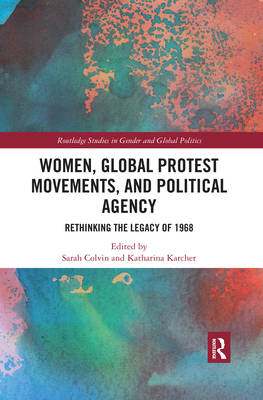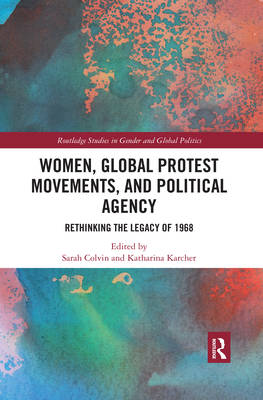
- Retrait gratuit dans votre magasin Club
- 7.000.000 titres dans notre catalogue
- Payer en toute sécurité
- Toujours un magasin près de chez vous
- Retrait gratuit dans votre magasin Club
- 7.000.000 titres dans notre catalogue
- Payer en toute sécurité
- Toujours un magasin près de chez vous
Women, Global Protest Movements, and Political Agency
Rethinking the Legacy of 1968
Description
This volume analyses and historicises the memory of 1968 (understood as a marker of an emerging will for social change around the turn of that decade, rather than as a particular calendar year), focusing on cultural memory of the powerful signifier '68' and women's experience of revolutionary agency.
After an opening interrogation of the historical and contemporary significance of "1968" - why does it still matter? how and why is it remembered in the contexts of gender and geopolitics? and what implications does it have for broader feminist understandings of women and revolutionary agency? - the contributors explore women's historical involvement in "1968" in different parts of the world and the different ways in which women's experience as victims and perpetrators of violence are remembered and understood.
This work will be of great interest to students and scholars of protest and violence in the fields of history, politics and international relations, sociology, cultural studies, and women's studies.
Spécifications
Parties prenantes
- Editeur:
Contenu
- Nombre de pages :
- 206
- Langue:
- Anglais
- Collection :
Caractéristiques
- EAN:
- 9780367471828
- Date de parution :
- 14-01-20
- Format:
- Livre broché
- Format numérique:
- Trade paperback (VS)
- Dimensions :
- 155 mm x 231 mm
- Poids :
- 294 g






